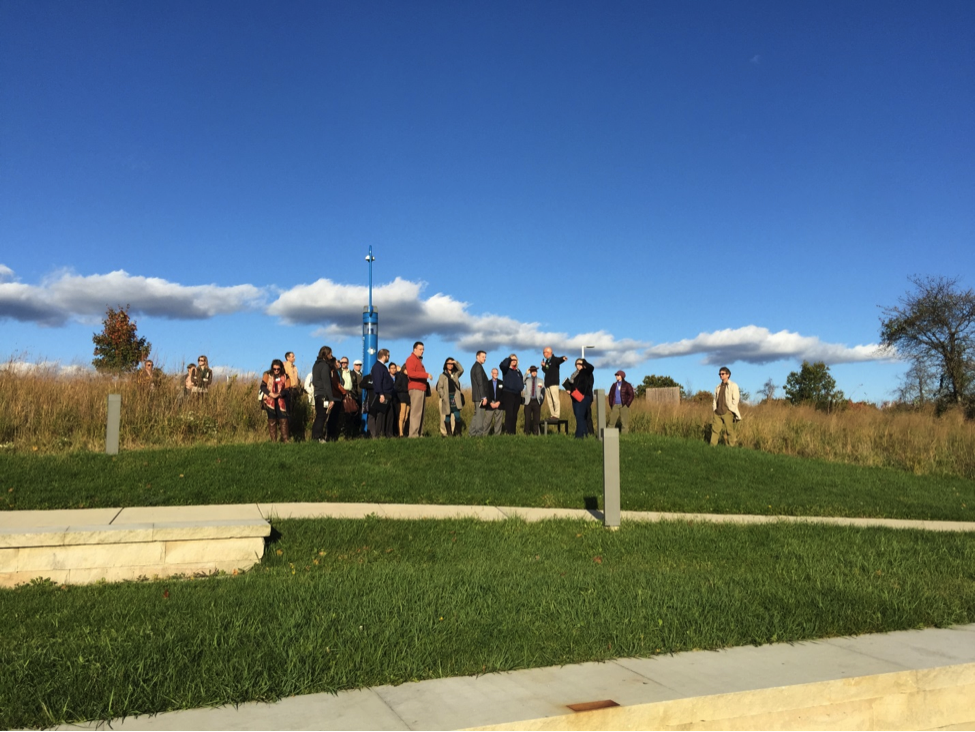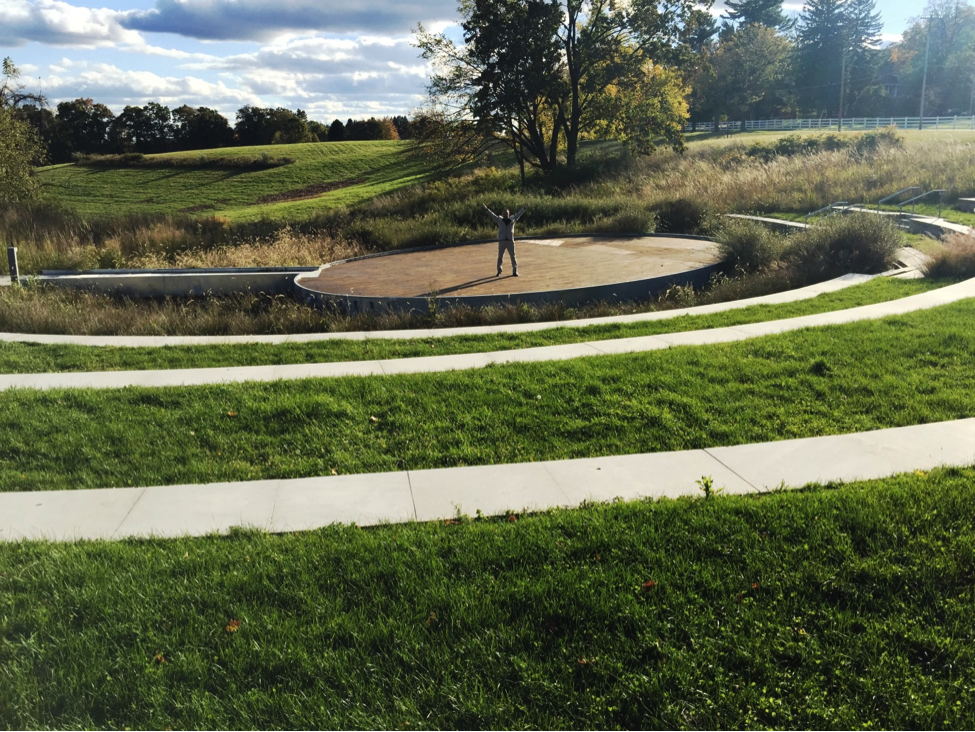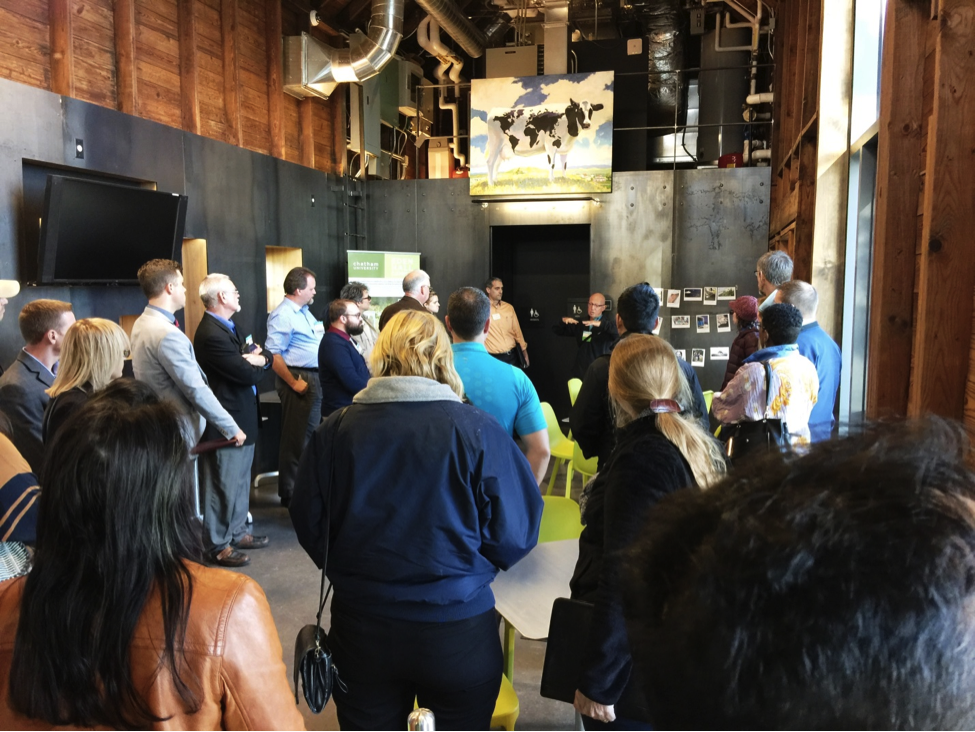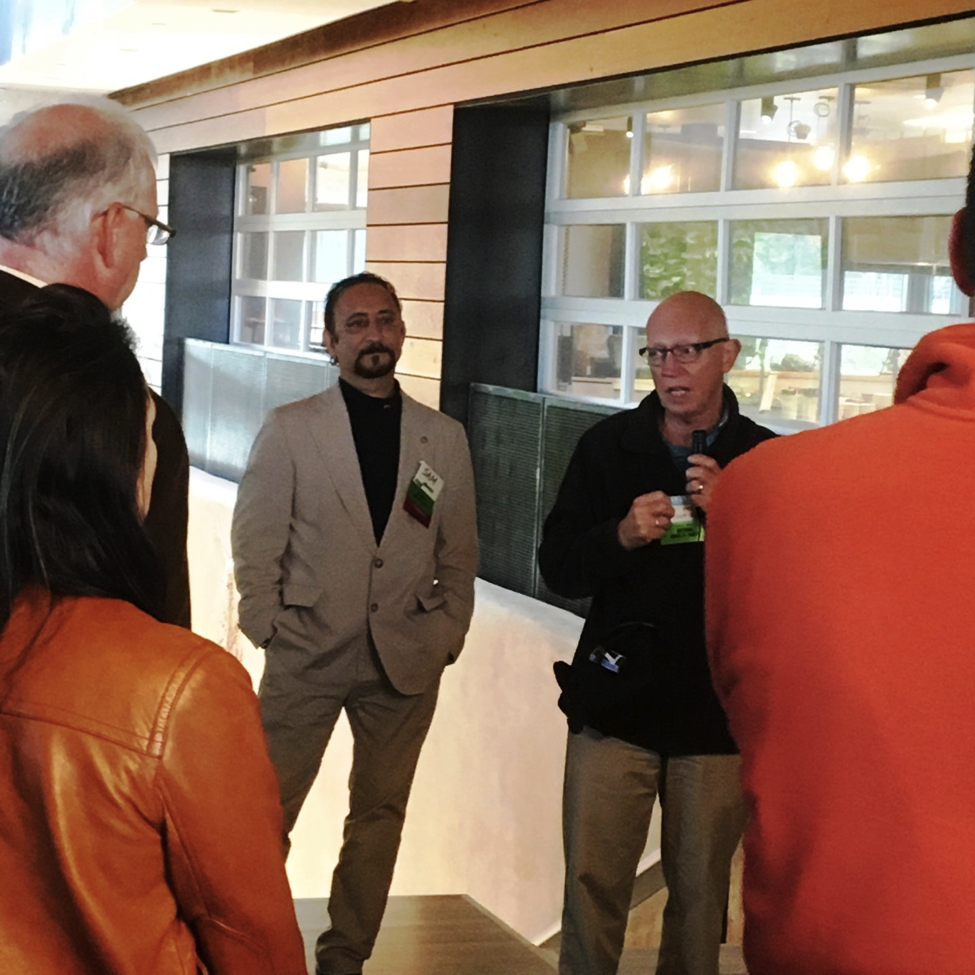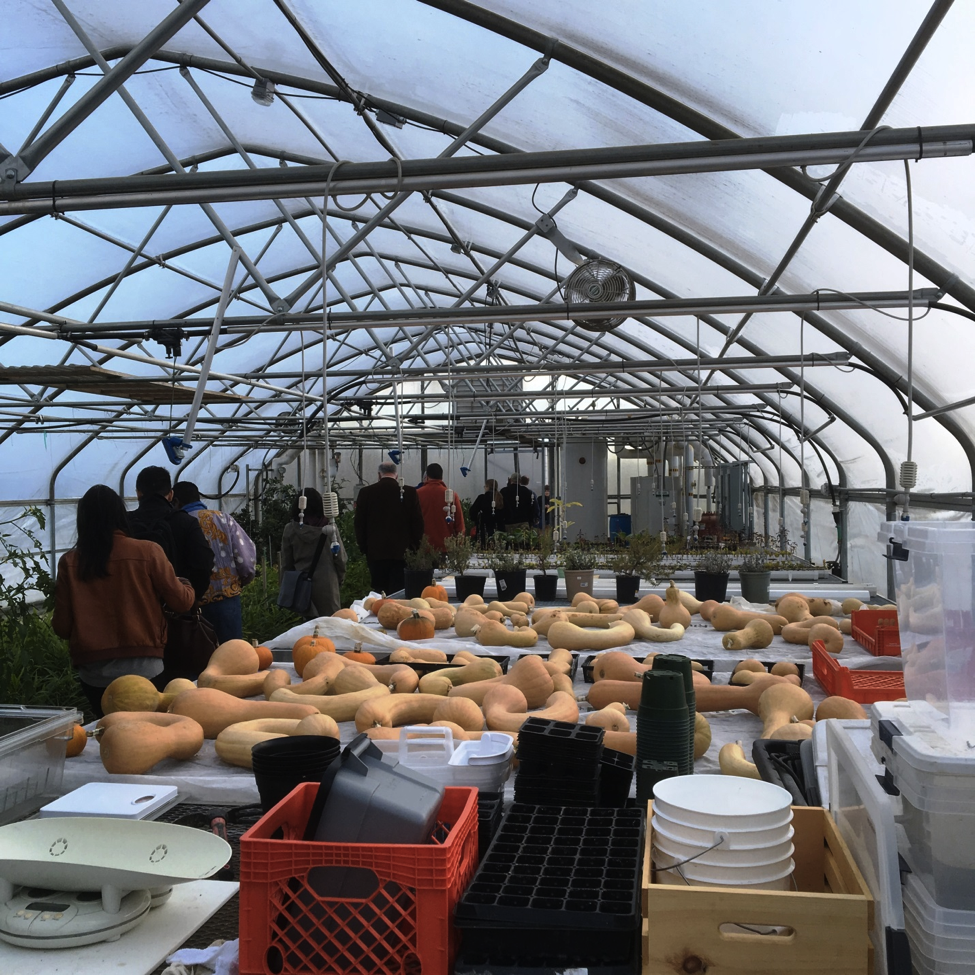By Sam Shamsi, PhD, PE,
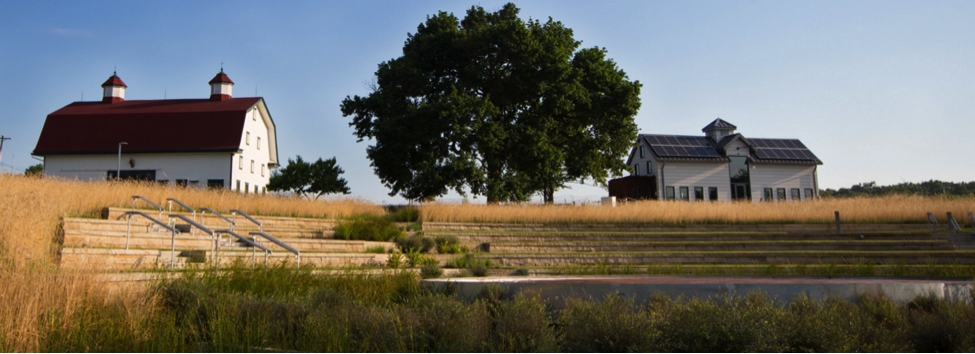 Located in Richland Township, PA (about 20 miles north of Pittsburgh) and home to the Falk School of Sustainability, Chatham University's Eden Hall Campus is far more than a 388-acre plot of land. It's the embodiment of a commitment Chatham makes every day to support sustainability and environmental education. At Eden Hall, the campus doesn't just house classrooms, it is the classroom. The 20- to 25-year development plan for the residential campus aims to:
Located in Richland Township, PA (about 20 miles north of Pittsburgh) and home to the Falk School of Sustainability, Chatham University's Eden Hall Campus is far more than a 388-acre plot of land. It's the embodiment of a commitment Chatham makes every day to support sustainability and environmental education. At Eden Hall, the campus doesn't just house classrooms, it is the classroom. The 20- to 25-year development plan for the residential campus aims to:
- Be self-sustaining in every way,
- House up to 1,500 students,
- Achieve zero carbon emissions,
- Produce more energy than it consumes, and
- Manage all stormwater and wastewater on site.
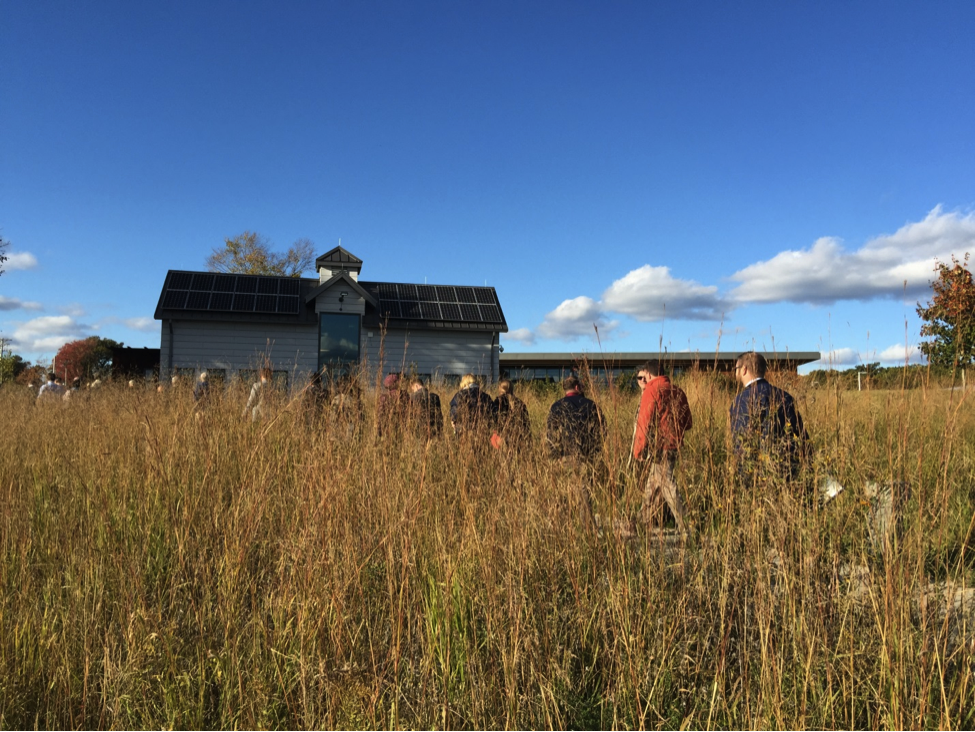 On October 24, 2016 the Section’s Continuing Education Committee provided an opportunity to see these sustainable facilities. As the Section’s Continuing Education Committee Chair and a Director, I attended the event along with dozens of other people. The event began with a guided walking tour of the campus led by the Dean of Falk School of Sustainability, Dr. Peter Walker himself.
On October 24, 2016 the Section’s Continuing Education Committee provided an opportunity to see these sustainable facilities. As the Section’s Continuing Education Committee Chair and a Director, I attended the event along with dozens of other people. The event began with a guided walking tour of the campus led by the Dean of Falk School of Sustainability, Dr. Peter Walker himself.
Eden Hall’s Stormwater Management is especially unique, and earned the ASCE-Pittsburgh’s 2015 Sustainability Award in the annual Engineers Week Awards Banquet held on February 20, 2016.
Eden Hall’s Stormwater is managed by:
- Five rain gardens that collect and direct water flow,
- Gravel walkways that allow rainwater to flow to the underlying soil, and
- A rainwater harvesting system that gathers and cleans the water.
The collected rainwater is then utilized for crop irrigation. Eden Hall also treats wastewater onsite through a six-step process that mimics nature. The system can handle up to 6,000 gallons each day. Read more here.
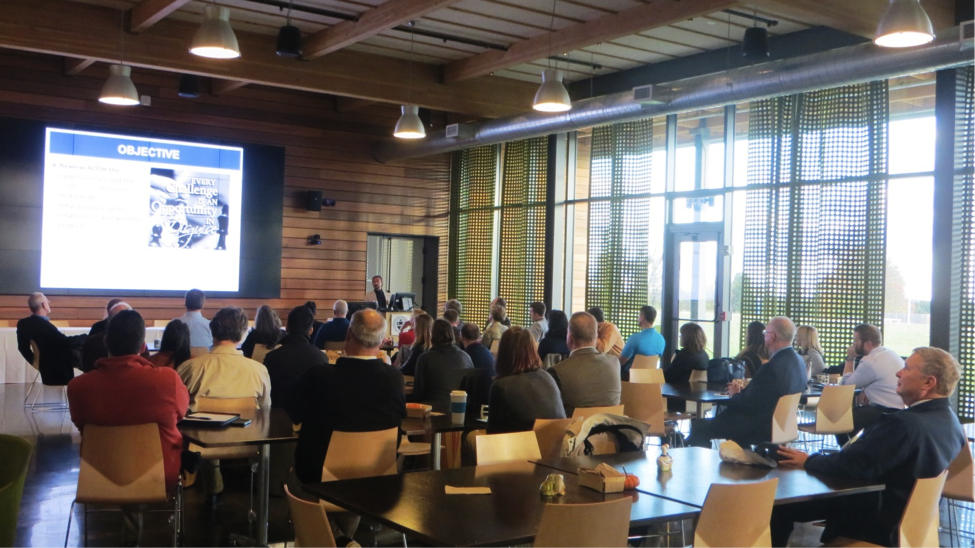 Following the tour, I delivered a lecture on Green Stormwater Infrastructure. The attendees and I discussed both the opportunities and challenges of green infrastructure, and I related them to region’s interest in using green solutions for solving local wet weather problems such as combined sewer overflows (CSOs) and flooding. Our first canon of ASCE’s Code of Ethics requires compliance with the principles of sustainable development. I encouraged the audience to share their green infrastructure concerns, and challenged the civil engineers to address those issues. Civil Engineers, after all, are the best problem solvers. They believe every challenge is an opportunity in disguise.
Following the tour, I delivered a lecture on Green Stormwater Infrastructure. The attendees and I discussed both the opportunities and challenges of green infrastructure, and I related them to region’s interest in using green solutions for solving local wet weather problems such as combined sewer overflows (CSOs) and flooding. Our first canon of ASCE’s Code of Ethics requires compliance with the principles of sustainable development. I encouraged the audience to share their green infrastructure concerns, and challenged the civil engineers to address those issues. Civil Engineers, after all, are the best problem solvers. They believe every challenge is an opportunity in disguise.
The lecture was followed by a panel discussion. The expert panel included the following members:
- Deborah Gross, City of Pittsburgh Councilwoman (District 7) and
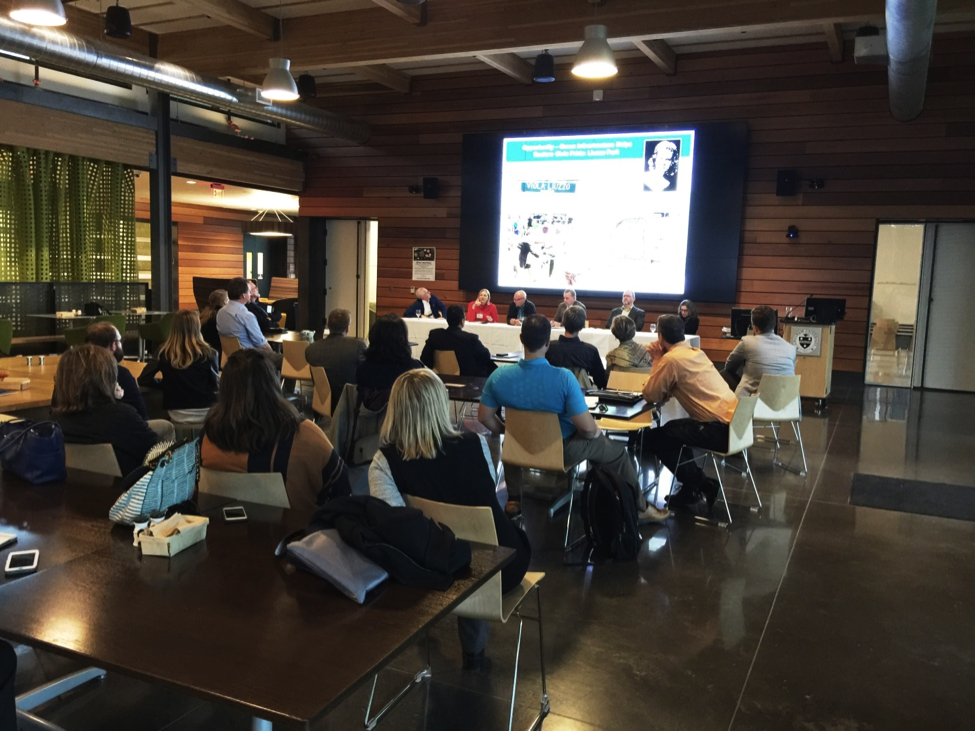 PWSA Board Member and Assistant Secretary / Treasurer
PWSA Board Member and Assistant Secretary / Treasurer
- Tim Prevost, PE, Manager, Wet Weather Program / Green Infrastructure Projects, ALCOSAN, Government Engineer of the Year Awardee, ASCE-Pittsburgh, 2012.
- Mark Wolinsky, Deputy Director, 3 Rivers Wet Weather, Inc.
- Dr. Peter Walker, Dean, Falk School of Sustainability and the Environment, Eden Hall, Chatham University
- Carol Hufnagel, PE, National Wet Weather Practice Leader, Tetra Tech
- John Buck, CPSS, Certified Professional Soil Scientist, Eden Hall Green Infrastructure Project, Civil & Environmental Consultants, Inc.
The lively panel discussion conducted by these distinguished members included a variety of perspectives on sustainable development.
- Pittsburgh Seventh Ward Councilwoman Deb Gross indicated that City of Pittsburgh’s newly released wet weather plan is based on green infrastructure. In addition to stormwater management, green infrastructure will also help with community building, safer streets, and people-scaled development.
- Tim Prevost mentioned ALCOSAN’s Green Revitalization of Our Waterways (GROW) program that provides matching grants to service area municipalities for green infrastructure projects.
- Mark Wolinsky indicated that continued funds must be set aside to maintain green infrastructure
- Dr. Walker indicated that “my right or my responsibility” issue makes the green infrastructure governance challenging.
- Carol Hufnagel said green infrastructure helps restore civic pride but can be more expensive than gray infrastructure if planned and designed improperly.
- John Buck talked about the design of Eden Hall’s green stormwater infrastructure and stressed the importance of soil testing before design and green infrastructure performance monitoring after construction.
The panel discussion was followed by audience questions, which led to a thought-provoking discussion among attendees and panel members. The event was concluded by a buffet dinner prepared onsite by Eden Hall’s chef Chris using ingredients from Eden Hall’s own certified organic farm. No disposable tableware were used. In fact, a disposable plastic water bottle I brought with me magically disappeared somewhere!
For questions or comments, please contact event organizer and chair of Continuing Education committee Sam Shamsi at sam.shamsi@gmail.com
